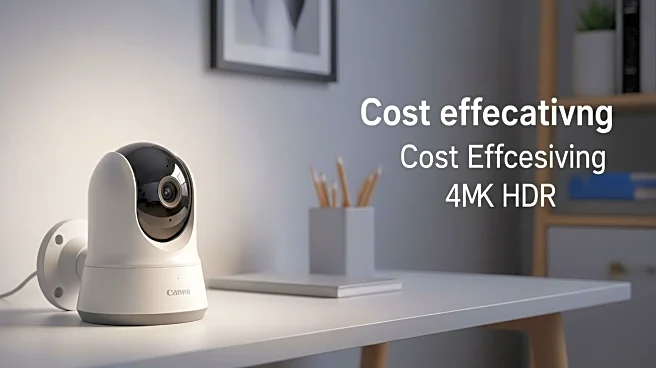What is the story about?
What's Happening?
Home security systems often come with a variety of devices and add-ons, which can be overwhelming for consumers setting up their own systems. Many of these features, such as alarm touchscreens, motion sensors, and proprietary smart locks, are deemed unnecessary in modern smart homes. The article suggests that with the advent of app-based controls, touchscreens have become redundant, and motion sensors are less reliable compared to access sensors. Additionally, proprietary smart locks from security companies may lack functionality compared to third-party options. The focus is on streamlining security systems by eliminating these non-essential features, which can help consumers save money.
Why It's Important?
The significance of identifying unnecessary home security features lies in cost savings and system efficiency. By eliminating redundant or less effective components, consumers can reduce expenses and simplify their security setups. This approach also highlights the importance of integrating third-party devices that offer better functionality and support. The shift towards more efficient and cost-effective security solutions reflects broader trends in smart home technology, where consumers prioritize value and performance over excessive features. This can lead to increased consumer satisfaction and potentially drive innovation in the home security industry.
What's Next?
As consumers become more aware of unnecessary features in home security systems, there may be a shift towards more customizable and modular security solutions. Companies might respond by offering more flexible packages that allow consumers to choose only the components they need. This could also lead to increased competition among third-party device manufacturers, as consumers seek out the best-performing products. Additionally, there may be a growing emphasis on educating consumers about the most effective security measures, potentially influencing future product development and marketing strategies in the home security sector.
Beyond the Headlines
The trend of eliminating unnecessary home security features could have broader implications for the smart home industry. It may encourage a move towards more sustainable practices by reducing electronic waste and promoting the use of multi-functional devices. This shift could also influence consumer expectations, leading to a demand for more transparent and honest marketing from security companies. Furthermore, as consumers become more tech-savvy, there may be an increased focus on cybersecurity and data privacy, prompting companies to enhance the security of their digital platforms.















